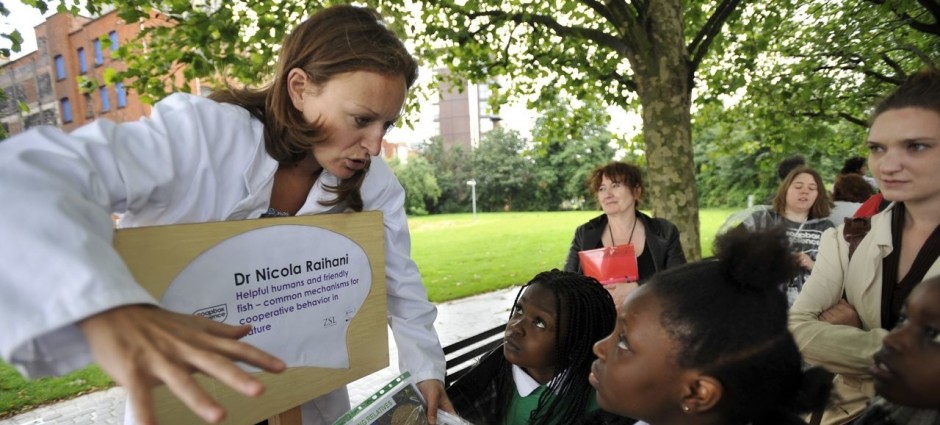 Dr Alex Shephard studied Biochemistry at the University of Oxford before completing a PhD in Cellular and Molecular Medicine at Bristol University in 2014. She then moved to Cardiff to take up her current position as a postdoctoral researcher in the School of Medicine. Alex’s current research focuses on exosomes, small bubbles released from cells which have the potential to act as markers for aggressive prostate cancer. You can catch Alex on her soapbox on June 10th in Cardiff when she will give a talk called: “Message in a bubble: how cancer cells turn healthy cells to the dark side”
Dr Alex Shephard studied Biochemistry at the University of Oxford before completing a PhD in Cellular and Molecular Medicine at Bristol University in 2014. She then moved to Cardiff to take up her current position as a postdoctoral researcher in the School of Medicine. Alex’s current research focuses on exosomes, small bubbles released from cells which have the potential to act as markers for aggressive prostate cancer. You can catch Alex on her soapbox on June 10th in Cardiff when she will give a talk called: “Message in a bubble: how cancer cells turn healthy cells to the dark side”
SS: Alex, how did you get to your current position?
AS: I studied Biochemistry at the University of Oxford before going on to complete a PhD in Cellular and Molecular Medicine at the University of Bristol. My PhD focused on how inflammation can cause colorectal cancer and I was keen to stay in the field of oncology. I therefore moved to Cardiff in 2015 to take up a postdoctoral position in the School of Medicine and am currently working on a project funded by Prostate Cancer UK, focusing on developing improved diagnostic tests for prostate cancer.
SS: What, or who, inspired you to get a career in science?
AS: Before the start of my GCSEs I would never have thought I would end up doing a science degree, let alone actually working as a scientist! At this point, I found chemistry difficult and biology boring. Everything changed during my GCSEs when I was particularly fortunate to have two really inspiring teachers who completely changed my opinion and my future career.
SS: What is the most fascinating aspect of your research/work?
Working in cell biology it always strikes me how amazing it is that there are millions of processes going on inside us every second just to keep us alive and we never notice! The human body is a fascinating machine that we all take for granted.
SS: What attracted you to Soapbox Science Cardiff 2017 in the first place?
AS: I really enjoy opportunities to talk about my work, especially to the public who often don’t get exposed to real scientists!
SS: Sum up in one word your expectations for the day
AS: Sociable
SS: If you could change one thing about the scientific culture right now, what would it be?
AS: The perception that to be a good scientist you have to constantly move around to different institutions and different places. Whilst it’s important to get a range of experiences and make new contacts this can be done with shorter term visits, you shouldn’t have to move abroad for a couple of years to stand a chance of a fellowship. This is a major barrier to people with families or who want to settle in one place.
SS: What would be your top recommendation to a woman studying for a PhD and considering pursuing a career in academia?
AS: This isn’t necessarily gender specific advice, but I’d say take every opportunity that comes your way even if you’re initially not too keen on it, you never know where things will take you.
